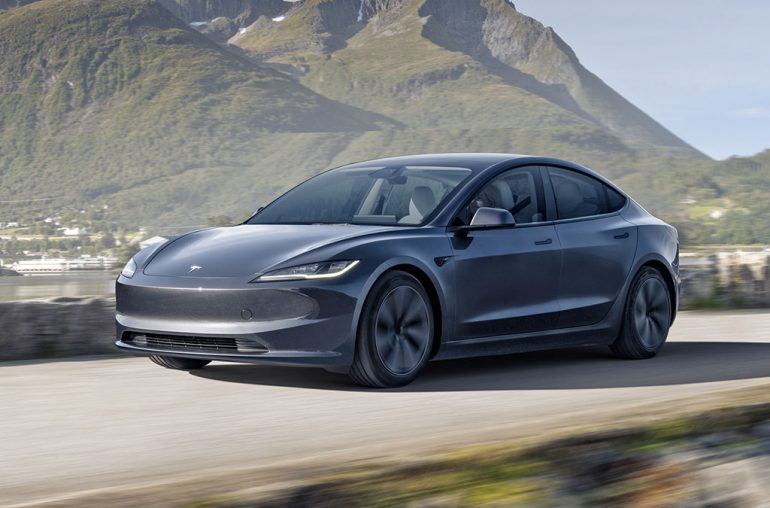
The U.S. Energy Department (DOE) is set to announce final rules aimed at softening a previous proposal that would have significantly reduced the mileage ratings of electric vehicles (EVs) to meet government fuel economy requirements by 2027, according to sources familiar with the matter.
Initially proposed in April 2023, the DOE’s plan aimed to revise the “Petroleum-Equivalent Fuel Economy” rating, which would have decreased the compliance value of EVs by 72% by 2027. However, the final rules, to be unveiled on Tuesday, will now gradually decrease the petroleum equivalent EV fuel economy rating through 2030, with an overall reduction of 65%, providing automakers with more time to adapt to the changes.
This decision comes as a relief to major U.S. automakers, including the Detroit Three, and the United Auto Workers (UAW) union, who expressed concerns that the initial proposal could have led to substantial fines totaling $10.5 billion through 2032 for failing to meet fuel economy requirements.
The Biden administration, taking into account feedback from automakers and the UAW, crafted the final rule. Environmental groups had also advocated for revising the EV mileage ratings, arguing that overly high imputed fuel economy values for EVs could lead to compliance without meaningful improvements in real-world average fuel economy.
The Miles Per Gallon equivalent (MPGe) ratings, which have not been updated for more than two decades, are determined using values for national electricity, petroleum generation and distribution efficiency, and driving patterns.
In addition to the DOE’s announcement, the Environmental Protection Agency (EPA) is expected to reveal revised vehicle greenhouse gas emissions requirements on Wednesday. These revisions are part of a broader plan to reduce tailpipe emissions and increase electric vehicle sales.
Under the initial EPA proposal, automakers were expected to have EVs constitute 60% of their new vehicle production by 2030 and 67% by 2032 to meet stricter emissions requirements. However, the final rules are anticipated to ease these requirements, allowing automakers to produce significantly fewer EVs by 2030.
The Alliance for Automotive Innovation, representing major automakers except Tesla, had urged the EPA to finalize rules resulting in a closer to 50% EV sales target by 2030.
The final greenhouse gas vehicle rules are also expected to benefit plug-in hybrid vehicles, with one potential compliance path allowing for over a third of vehicles produced in 2032 to be plug-in hybrids.
Furthermore, the EPA is anticipated to scale back its proposal to reduce particulate matter from gas-powered vehicles, addressing concerns raised by the industry. Automakers objected to the plan to largely eliminate the use of “enrichment,” a strategy to boost performance, which they argued would limit their ability to use certain engines. As a result, the EPA is expected to adjust its plan regarding enrichment usage.

Mike Floyd is a finance executive by trade and a car enthusiast at heart. As a CFO with a keen eye for detail and strategy, Mike brings his analytical mindset to the automotive world, uncovering fresh insights and unique perspectives that go beyond the surface. His passion for cars—especially his favorite, the Porsche 911, fuels his contributions to Automotive Addicts, where he blends a love for performance and design with his professional precision. Whether he’s breaking down industry trends or spotlighting emerging innovations, Mike helps keep the site both sharp and forward-thinking.